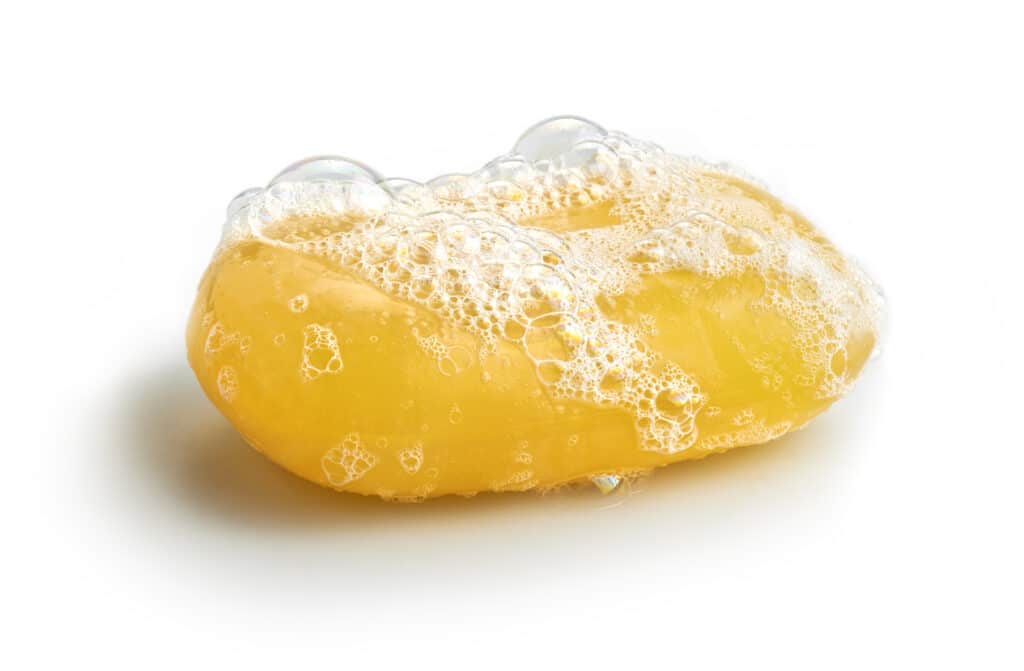
*Ancient Mesopotamians were reportedly the first to produce a kind of soap by cooking fatty acids.
Per The New York Times, “Soap likely originated as a by-product of a long-ago cookout: meat, roasting over a fire; globs of fat, dripping into ashes,” the outlet writes. According to the report, “Written recipes for soap date back nearly 5,000 years, with variations from Mesopotamia, Egypt, ancient Greece, and Rome.”
Bacon and candles reportedly led to the creation of the soap industry in America. Procter & Gamble’s Ivory was one of the first soaps to gain national distribution, per the Times report.
As noted by Get Pocket, the dirty history of soap-making is not known by many. A historian contributor for the outlet unpacked soap’s use in the past and its messy origins.
READ MORE: Hakeem, Err, Bryshere Gray Violated Probation After 2 New Domestic Abuse Complaints

Here’s more via Get Pocket:
- Ancient Mesopotamians were first to produce a kind of soap by cooking fatty acids – like the fat rendered from a slaughtered cow, sheep or goat – together with water and an alkaline like lye, a caustic substance derived from wood ashes. The result was a greasy and smelly goop that lifted away dirt.
- Ancient people used these early soaps to clean wool or cotton fibers before weaving them into cloth, rather than for human hygiene.
- By the Middle Ages, new vegetable-oil-based soaps, which were hailed for their mildness and purity and smelled good, had come into use as luxury items among Europe’s most privileged classes.
- In the new nation, the founding of soap manufactories like New York-based Colgate, founded in 1807, or the Cincinnati-based Procter & Gamble, founded in 1837, increased the scale of soap production but did little to alter its ingredients or use. Middle-class Americans had resumed water bathing, but still shunned soap.
- The Civil War was the watershed. Thanks to reformers who touted regular washing with water and soap as a sanitary measure to aid the Union war effort, bathing for personal hygiene caught on. Demand for inexpensive toilet soaps increased dramatically among the masses.
Read more here, and learn more about the history of soap via the clip below.
We Publish News 24/7. Don’t Miss A Story. Click HERE to SUBSCRIBE to Our Newsletter Now!





